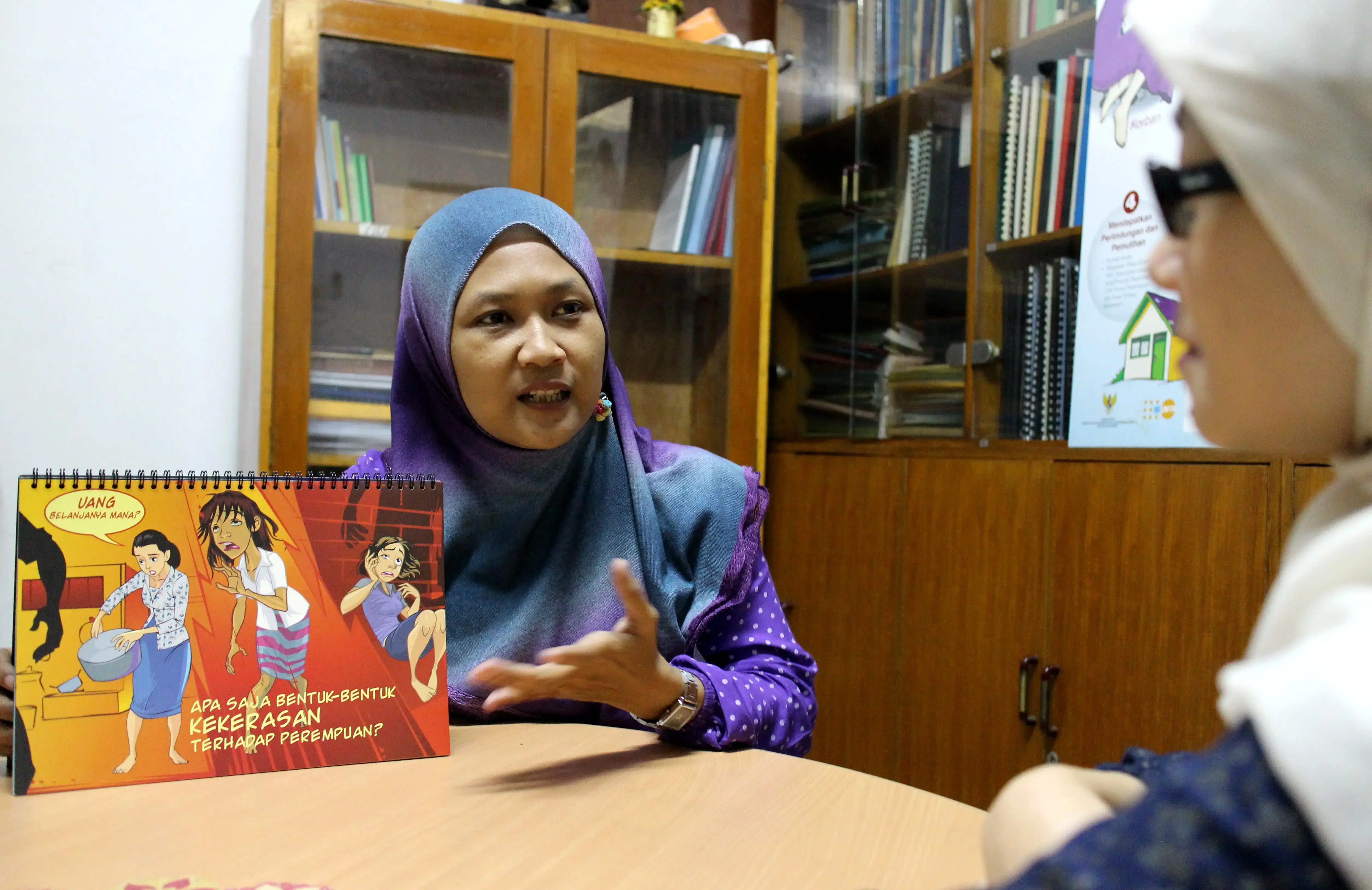Despite significant progress in gender equality, including increased access for women and girls to education, employment and health services, Gender-Based Violence (GBV) remains a serious public health and human rights concern.
The Government of Indonesia recognizes the need for a systematic solution to ending GBV.
National policies, strategies and legal documents have been put in place. However, implementation challenges remain.
UNFPA is supporting the Government through:
- Strengthening its health sector response to GBV, as an entry point to providing services to survivors of violence
- Policy advice on the prevention of GBV, including in humanitarian setting
Supporting availability and use of data for the formulation of programmes and policies addressing GBV.
Reported cases of Violence Against Women (VAW) have increased from 105,103 in 2010 to 279,760 cases in 2013, with the highest percentage related to domestic violence of 101,128 cases (96%) in 2010 to 275,004 cases (98%) (2013 Mid-term Development Plan (RPJMN) 2015-2019, data from the National Commission on Violence Against Women (NCVAW) .
UNFPA Indonesia provides evidence-based advocacy and policy and programming advice for the prevention of GBV, including as part of a humanitarian response, with particular emphasis on linkages to reproductive health:
- Provides technical assistance to the Ministry of Women’s Empowerment and Child Protection (MOWECP) and BPS-Statistics Indonesia for the conduct of the National VAW Survey. An in-depth analysis of the results of the VAW Survey will inform advocacy, policy and programming for the elimination of VAW. It will also be used as a background study for VAW prevention and response in the formulation of the new National Mid Term Development Plan (RPJMN) 2020-2024.
- Provides evidence-based advocacy to the Government for a government decree on a multi-sectoral approach to GBV prevention and response, including MOWECP coordination with Ministry of Health (MOH), and regulation on the health sector response to GBV.
- Provides technical assistance to the NCVAW to strengthen and improve existing GBV related laws and policies
Provides support for the implementation of GBV in humanitarian settings, including the establishment and strengthening of the Women Friendly Spaces during disasters; improved coordination; and improved national guidelines on GBV in humanitarian settings.
Engaging Men and Boys in SRH and prevention of GBV
In promoting gender equality, male involvement is essential especially in reproductive and sexual health, and prevention of GBV and harmful practices. Evidence shows that male involvement through comprehensive education programmes can effect positive changes in men’s attitudes, perceptions, and behaviors Gender Transformative Programming (GTP). Engaging male community leaders, including prominent religious and cultural figures, has improved reproductive health status as well as reduced incidences of violence against women.
UNFPA Indonesia supports MOWECP in developing Guidelines on Male Involvement in the Prevention of GBV, to be used also by relevant ministries for their policies and programmes at national and subnational levels.
UNFPA has been unequivocal in its commitment to addressing gender inequality in its development and humanitarian work. UNFPA has promoted the need to involve men and boys in every aspect of its work. Working with men is vital for ensuring GTP across all programme areas. This approach means challenges and structures that reinforce men’s advantages can be examined and addressed, and those that support gender equality can be strengthened..
UNFPA Indonesia provides technical support and advocacy for integrating the engagement of men and boys in various programmes in Sexual Reproductive Health (SRH) and GBV prevention:
- Provides technical support to MOWECP to develop monitoring tools for implementation of the ministerial policy on men and boys engagement in SRH and GBV prevention.
- Provides evidence-based advocacy, through gap analyses and policy briefs, for integrating the engagement of men and boys for SRH and GBV prevention policies and programmes.
Building on UNFPA’s work programme on community-based GBV prevention, the Papua-based Partners for Prevention (P4P) initiative aims to foster gender equality by engaging young people and their caregivers. The results of this initiative will provide the evidence base for a strengthened GBV prevention policy and programme using the men and boys engagement approach.



